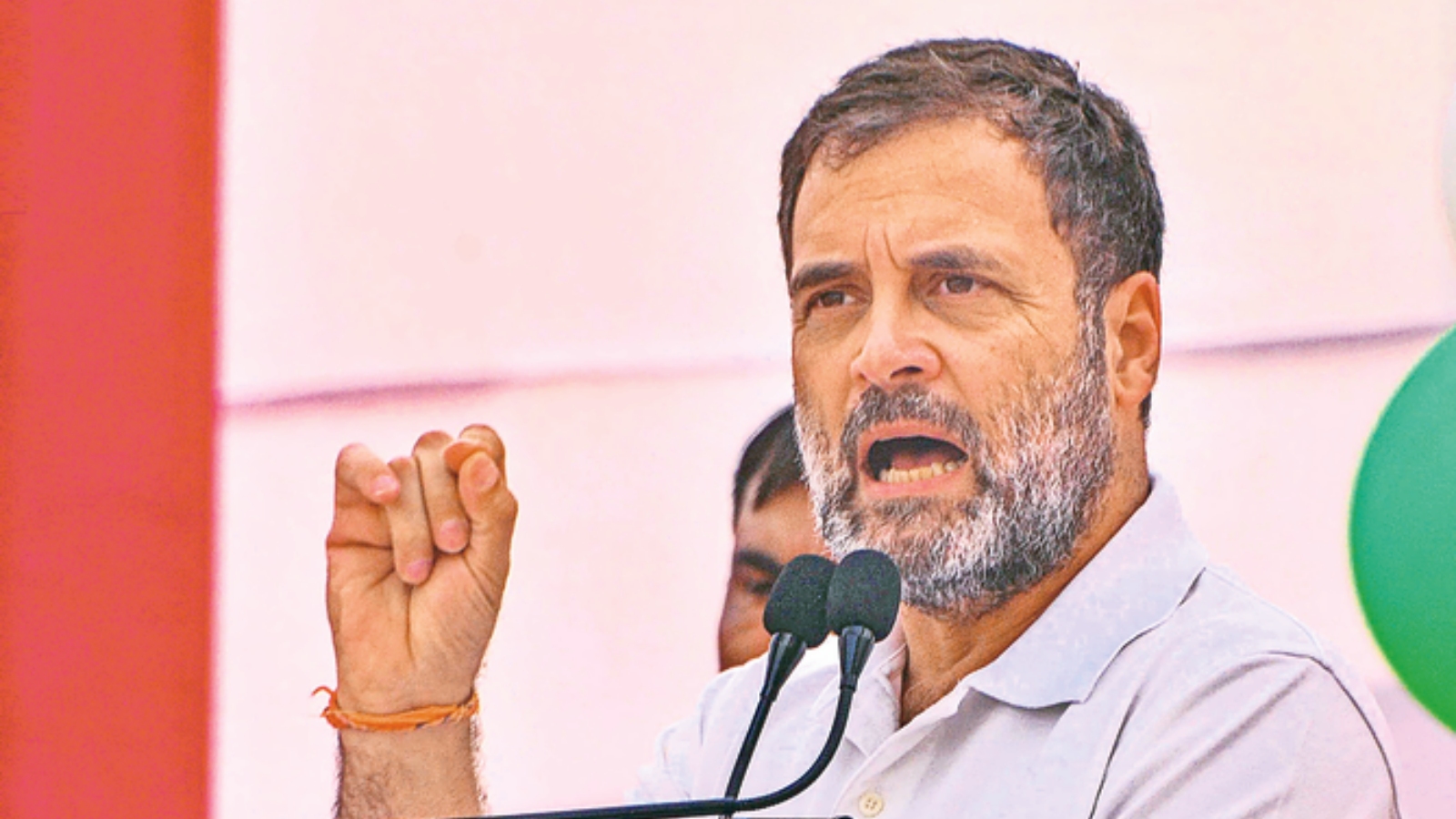Leader of the Opposition Rahul Gandhi appears to have chosen to be a destructive force in Parliament. His interventions in the Budget Session suggest that the Congress leader’s sole mission is to somehow get under the skin of the ruling party leadership through aggressive arguments and articulation. One example was his flimsy, if not absurd, argument about the “halwa ceremony” before the budget.
Democracies can only be measured by the existence of an Opposition. But the fact is also that there are no ideal democracies in the world. Lenin used to say that there are no morals in politics, only expedience. Expedient politics is all about power and that makes leaders resort to what Michael Ignatieff, former leader of the Canadian Liberal Party, called the “politics of enemies”. Once that form of politics begins, then the language, behaviour and tactics of partisan demonisation will begin to dominate the political landscape. Such “politics of enemies” doesn’t stop at the gates of political institutions but can spread through conventional and social media and influence citizens at large.
Leaders practising such politics know that people might initially be sceptical about the language and ideas that they are championing. Arguments like “Desh ka halwa bat raha hai aur 73 per cent log hai hi nahi” (In the Budget’s halwa ceremony, 73 per cent of the population was not represented) could sound insipid and hysterical to many. But there is a sinister method in this madness. Leaders know that over time, sheer repetition of such rhetoric will help them dominate the discourse and turn gullible people gradually to their side. All that is needed is a veneer of benignity and sincerity.
Ignatieff makes a profound observation that “what makes the ‘politics of enemies’ seductive is that its ruthlessness is so often packaged as a defence of democracy itself”. Leaders hide behind the specious claim that, after all, their political enemies are enemies of the whole nation because they are threatening to impose tyranny, and hence, as former US Republican Senator Barry Goldwater said in 1964, “extremism in the defence of liberty is no vice.”
India has seen a dozen Opposition leaders since Independence. In Rahul Gandhi’s own family, Indira Gandhi, Rajiv Gandhi and Sonia Gandhi, had been the leaders of Opposition. Rajiv was the youngest at the age of 45 to occupy that coveted post. At 54, Rahul would be the second youngest leader of the Opposition — a post which acquired greater importance in the last few decades after it was accorded the status of a cabinet minister and given a hand in the appointment of senior officials like the CBI director, election commissioners, Lokpal, ED directors and NHRC commissioners. These powers and responsibilities call for greater maturity and balance, and an ability to not trivialise Opposition politics.
From the time a Congress (O) member Ram Subhag Singh became the first leader of Opposition in 1969, the Lok Sabha had seen stalwarts like Y B Chavan, Jagjivan Ram, Rajiv Gandhi, L K Advani, Atal Bihari Vajpayee, P V Narasimha Rao, Sharad Pawar, Sonia Gandhi and Sushma Swaraj occupying that high office. Most of them conducted themselves with decorum, setting new standards for the functioning of the House. There were occasions when the two sides of the House demonstrated bonhomie, like when Prime Minister Narasimha Rao decided to send the Leader of the Opposition, Vajpayee, as the leader of the Indian delegation to the UN Human Rights Convention in Geneva in 1994. That was the finest moment of the ruling and Opposition parties coming together for a national cause.
The Geneva Human Rights Convention was a very critical moment for India as Pakistan came with all guns blazing on Kashmir. But the Indian side, too, became formidable when cutting across political lines — Vajpayee, Salman Khurshid and Farooq Abdullah launched a united counteroffensive. In the end, Pakistan was forced to withdraw its petition on Kashmir and the victory for the Indian side was so sweet that Hamid Ansari, who was present as India’s special representative at the UN, summed up the outcome in a message to Delhi: “The batsman simply refused to play”.
It may be a tall order to expect a return to those days. But it may not be ambitious to expect sensitive domestic issues like caste to be dealt with more diligently. Social justice is an important article of faith for the entire country irrespective of politics. From leaders such as B R Ambedkar and Ram Manohar Lohia, we inherited a vision of social justice, according to which granting every social group its rights leads to a gradual weakening of caste as an institution. Ambedkar wrote a thesis on the annihilation of caste.
Whether or not the caste Census is required will be decided by the political system based on its needs and merits. It is nobody’s case to argue that the issue raised by the Leader of the Opposition was wrong. But it may be pertinent to remind him what, occupying the same position, his father Rajiv Gandhi had said in a debate on the Mandal Commission in September 1989. Accusing the National Front government led by V P Singh of causing caste tensions in the country, Rajiv sought to remind that his party, under the leadership of his mother, fought the elections in 1980 on the slogan — “na jaat par, na paat par” (not on caste or creed).
Mandal Commission recommendations were supported by all parties as a social need but what Rajiv Gandhi had said in his speech at that time may be important for his son to remember: “I think nobody in this House will say that the removal of backwardness and the removal of poverty are not part of that national goal. I think, equally nobody in this House will say that the removal of casteism is not part of that national goal. We must remember both”.
The writer, president, India Foundation, is with the RSS. Views expressed are personal



